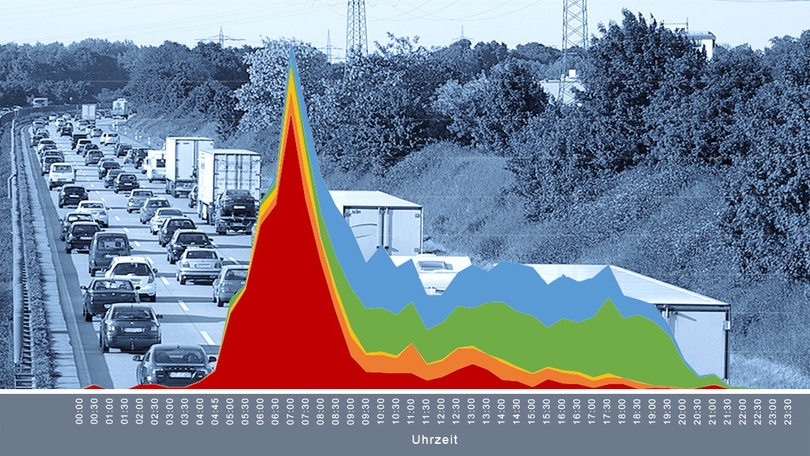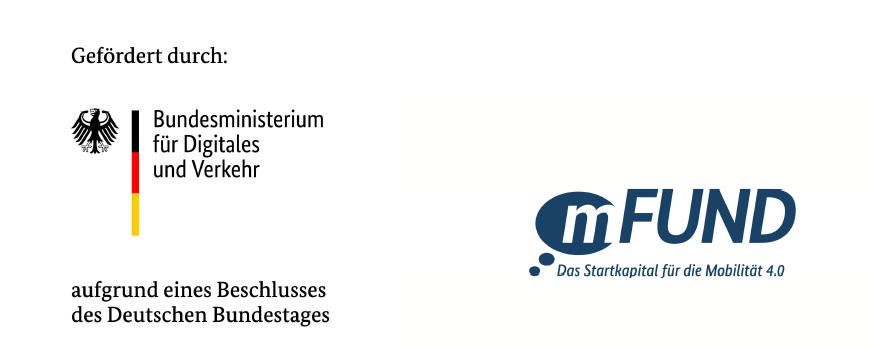NN-FAND – Trip purpose-differentiating analyses of the demand structure at permanent counting stations using neural networks and other AI methods
- contact:
- funding:
Federal Ministry for Digital and Transport (BMDV)
mFUND
- partner:
Steinbeis angewandte Systemanalyse GmbH (STASA)
- start:
2022
- end:
2023
Problem statement
On federal trunk roads, vehicles are recorded at permanent counting stations by means of automated counting devices over long periods of time. From this, demand profiles can be derived, which depict traffic demand volumes over time. The information from these demand profiles is used to determine the peak-hour traffic volumes required to design the road.
Demographic change or the increasing flexibility of work (e.g. through more home office) are foreseeably changing the temporal structures of traffic demand. This also affects the demand peaks relevant for the design of the infrastructure. In order to derive suitable forecasts, it is necessary to know how such a demand profile is composed of different trip purposes and user groups at different times.
Objective
The objective of the feasibility study is to develop a procedure that resolves the summed demand profile at the permanent counting stations according to individual trip purposes and user groups. Data from mobility surveys owned by the BMDV (MOP Mobility Panel, MiD 2017 Survey Mobility in Germany) contain information about users and trip purposes, but not the spatial references contained in the demand profiles, i.e. the geographic location. The project aims to make the information contained in the mobility survey data nevertheless usable for differentiation.
Methods
On the basis of the mobility survey data, idealized demand profiles are formed as usage patterns with defined properties. These are used to replicate the demand profiles of individual permanent count points: AI (artificial intelligence) methods are used to transfer these usage patterns to other counting point data via the similarities of structures and environmental conditions (type of space, location in the network) in order to derive both an improved understanding of usage structures (trip purposes, users) and a causally justifiable forecast of design traffic volumes under changed framework conditions.
About the mFUND funding program of the BMDV
As part of the mFUND funding program, the BMDV has been supporting research and development projects related to data-based digital innovations for Mobility 4.0 since 2016. Project funding is supplemented by active professional networking between stakeholders from politics, business, administration and research and the provision of open data on the mCLOUD portal. For more information, visit www.mfund.de.


